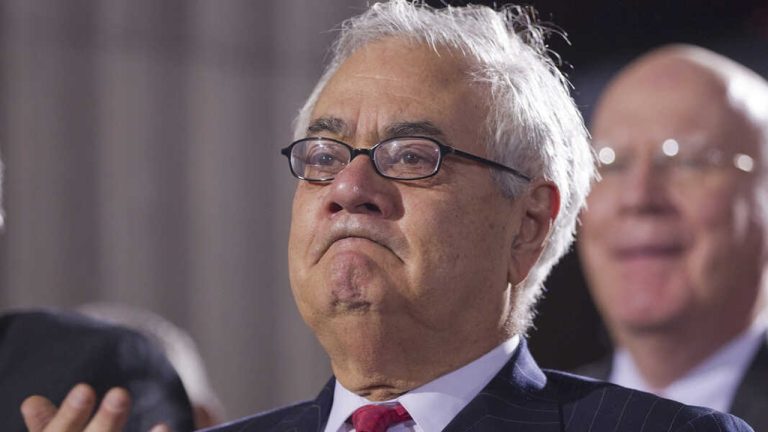
Bankrupt crypto lender Genesis is reportedly agreeing to pay a $21 million civil fine to settle with the U.S. Securities and Exchange Commission (SEC) over the now-defunct Gemini Earn program. According to a new report by Reuters, the settlement will allow Genesis to focus on repaying customers and creditors instead of having to defend itself […]
The post Crypto Lender Genesis Agrees to $21 Million Civil Penalty To Settle Gemini Earn SEC Lawsuit: Report appeared first on The Daily Hodl.

A New York financial regulator is ordering crypto firm Genesis Global Trading to pay an $8 million fine after it was found to be in violation of the law. In a new press release, the New York State Department of Financial Services (DFS) says that the crypto trading branch of the Digital Currency Group (DCG) […]
The post Genesis Global Trading Ordered To Pay $8,000,000 Fine by New York Financial Regulator Over Compliance Violations appeared first on The Daily Hodl.

New York state’s financial regulator just rescinded its approval on most of the digital assets it had previously made easy for crypto firms to do business with. The New York State Department of Financial Service (DFS) previously had 24 assets on their “Greenlist” of coins. The agency says virtual currency (VC) entities can list or […]
The post New York Strikes Out Dogecoin, XRP, Litecoin, Chainlink and Other Crypto Assets From ‘Greenlisted Coins’ appeared first on The Daily Hodl.

The platform was charging investors ‘exorbitant and undisclosed fees’ with one user being charged recurring fees of $51,000 over a span of 13 months, according to the statement.
Cryptocurrency trading platform Coin Cafe has been ordered to repay $4.3 million to its users after allegedly charging “exorbitant and undisclosed fees" for storing Bitcoin on the platform — leading to some accounts being drained entirely of its funds.
Based in Brooklyn, Coin Cafe initially filed an application for a virtual currency license with the New York State Department of Financial Services in July 2015, however, was only approved in January this year.
Despite the seven-and-a-half-year application process, it was allowed to operate throughout but was flagged as putting “investors at risk,” as it didn’t uphold its obligation to register with the Office of the Attorney General for New York – which all New York broker-dealers are required to do so.
On May 18, it was revealed that the exchange had been charging investors “exorbitant" fees for investors to store Bitcoin without properly informing them, leading to some cases in which investors' accounts were wiped out entirely, according to New York State Attorney General Letitia James.
In a statement, James said Coin Cafe defrauded “hundreds of New Yorkers” out of thousands of dollars, routinely charging and increasing “fees without properly informing investors.”
One New York investor incurred fees exceeding $10,000 in a single month, while another investor was hit with fees amounting to $51,000 over a span of 13 months. It was noted:
“The company was charging investors exorbitant and undisclosed fees to use its wallet storage, despite marketing its wallet storage as “free” on its website.”
The Office of the Attorney General’s (OAG) investigation revealed that Coin Cafe changed the fee structure four times since September 2020, without ever “clearly telling investors of the increase.”
This is another example of why my office proposed commonsense measures to regulate the cryptocurrency industry and protect people from fraud.https://t.co/G5XkasCfhA
— NY AG James (@NewYorkStateAG) May 18, 2023
The “most drastic fee structure change” occurred in October 2022 when investors were charged a fee for inactivity. It stated:
“It charged investors the greater of 7.99 percent of the account or $99 worth of Bitcoin per month if an investor did not buy, sell, or transfer Bitcoin on the Coin Cafe site within 30 days.”
James criticized the “deceptive marketing” involved, but also highlighted the “lack of effective regulation” as a contributing factor.
“This is yet another example of why the cryptocurrency industry needs to be better regulated,” James stated.
Related: US lawmakers hold EU and UK as examples of crypto regulation in joint hearing
In a settlement, Coin Cafe is required to refund all fees to U.S.-based investors who request a refund within the next year.
The platform is also obligated to notify all U.S-based customers of their eligibility for a refund via email by May 23.
Cointelegraph reached out to Coin Cafe for comment but did not receive a response by the time of publication.
Magazine: US enforcement agencies are turning up the heat on crypto-related crime
 Barney Frank, a former member of the U.S. House of Representatives from Massachusetts and leading co-sponsor of the 2010 Dodd-Frank Act, discussed his opinion on the recent failure of Signature Bank. In an interview, Frank stated that he believes regulators aimed to “send a very strong anti-crypto message.” Frank, who also serves as a Signature […]
Barney Frank, a former member of the U.S. House of Representatives from Massachusetts and leading co-sponsor of the 2010 Dodd-Frank Act, discussed his opinion on the recent failure of Signature Bank. In an interview, Frank stated that he believes regulators aimed to “send a very strong anti-crypto message.” Frank, who also serves as a Signature […]
The proposal is led by DFS Superintendent Adrienne Harris who is looking for public feedback on the move as the regulator looks to gain further oversight controls.
The New York State Department of Financial Services (DFS) has submitted a proposed change in state laws that would allow it to charge licensed crypto companies for regulating them.
While that may seem like an odd proposition, under Financial Services Law (FSL) it is common practice for the DFS to charge licensed non-crypto financial entities for the cost and expenses of maintaining oversight over them.
The proposal is led by DFS Superintendent Adrienne Harris, who announced the move via the DFS website on Dec. 1 and has submitted it for public feedback over the following 10 days.
Essentially, Harris is looking to bring virtual currency businesses in line with other regulated financial entities in the state, as FSL did not have a provision for crypto companies when crypto regulation was adopted in New York in 2015.
Harris also outlines that these “regulations will allow the Department to continue adding top talent to its virtual currency regulatory team.”
“Through licensing, supervision and enforcement, we hold companies to the highest standards in the world,” Harris said, adding that “the ability to collect supervisory costs will help the Department continue protecting consumers and ensuring the safety and soundness of this industry.”
According to the proposal document, the DFS would charge firms based on the total operating expenses of overseeing licensees, and the “proportion deemed just and reasonable” for other operating and overhead expenses.
As such, there isn’t a set figure that all companies pay as their amount of oversight differs, however, the total amount owing would be broken down into five payment periods over the fiscal year.
With the crypto sector witnessing yet another multi-billion implosion, this time as the result of now-bankrupt FTX, Alameda Research and former golden boy Sam Bankman-Fried, it is unsurprising that regulators are scrambling to impose extra regulatory oversight.
Related: We could use crypto regulation after FTX — But let's start with basic definitions
In a U.S. Senate committee hearing on the FTX debacle on Dec. 1, Commodity Futures Trading Commission (CFTC) chair Rostin Behnam stated that while he feels his agency has the tools to oversee crypto, there are gaps in legislation that need filling.
“Without new authority for the CFTC, there will remain gaps in a federal regulatory framework, even if other regulators act within their existing authority,” he said.
 The New York State Department of Financial Services (DFS) has fined Robinhood Crypto $30 million for “significant failures in the areas of bank secrecy act/anti-money laundering (‘BSA/AML’) obligations and cybersecurity.” Robinhood Crypto Settles With the DFS The New York State Department of Financial Services (DFS) announced Tuesday that Robinhood Crypto LLC (RHC) will pay a […]
The New York State Department of Financial Services (DFS) has fined Robinhood Crypto $30 million for “significant failures in the areas of bank secrecy act/anti-money laundering (‘BSA/AML’) obligations and cybersecurity.” Robinhood Crypto Settles With the DFS The New York State Department of Financial Services (DFS) announced Tuesday that Robinhood Crypto LLC (RHC) will pay a […]